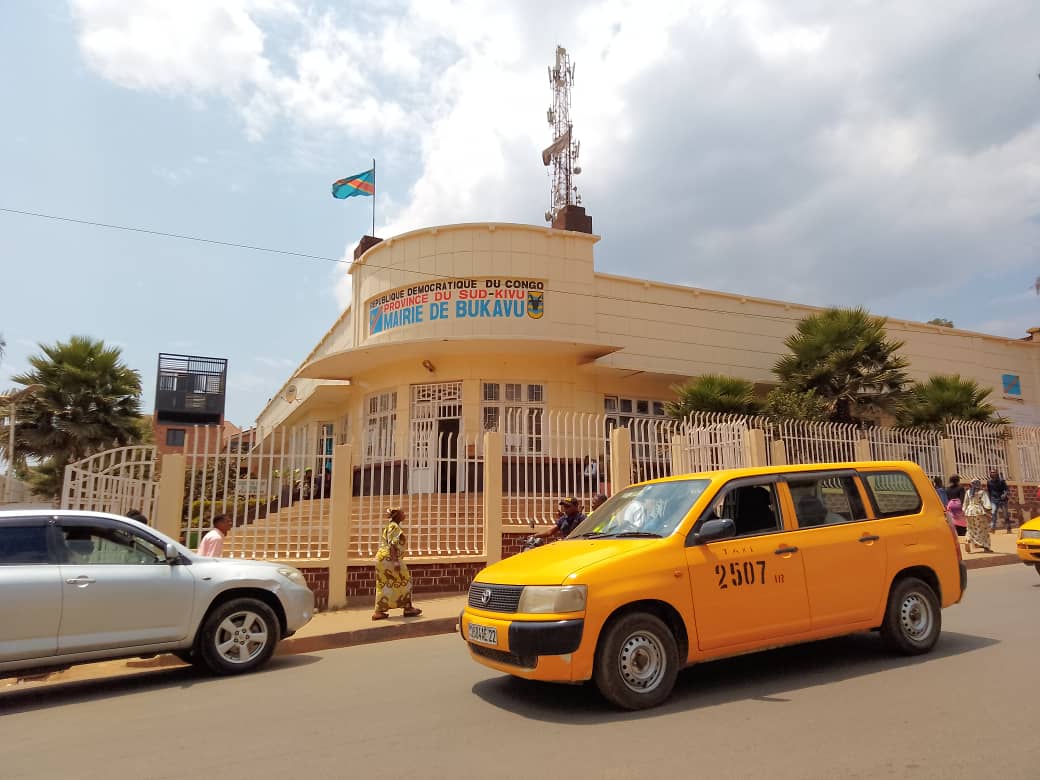### Moving miners in Bukavu: a crisis underlying the natural richness of the DRC
The recent looting of more than 50 tonnes of 3T minerals – in particular cassiterite, tungsten and tantalum – in Bukavu tragically illustrates the permanent anxiety which eats away from the eastern region of the Democratic Republic of Congo. The elements of the AFC/M23-RDF, which targeted the Kivu Minerals treatment entity on the night of March 23, 2025, do not only increase the level of insecurity, they also exacerbate the economic and environmental issues linked to the exploitation of Congolese natural resources.
#### A disturbed economic context
The DRC, endowed with the greatest deposits of natural resources in the world, is paradoxically plagued by extreme poverty and perpetual political instability. About 70% of the population lives with less than $ 1.90 per day (estimate of the World Bank). This situation is largely explained by the government’s inability to set up a solid economic infrastructure which would transform these resources into sustainable income for its citizens. Events like that of Bukavu make the link between the informal economy, corruption and large -scale theft even more manifest, which generates a vicious circle of impoverishment and conflicts.
Comparedly, other countries rich in resources, such as Botswana with its diamonds or even Chile with its copper, have been able to set up policies and institutions capable of channeling the income of natural resources to socio-economic development. The absence of such a vision in the DRC creates a fertile land for illegal exploitation and war, where armed groups like the M23, sometimes supported by complex geopolitical measures, monopolize wealth to the detriment of the local population.
### The environmental dimension
Beyond the immediate economic impact, mineral looting also raises environmental concerns. The extraction of 3T minerals, often practiced in illegal and unregulated conditions, generates substantial damage: deforestation, pollution of watercourses, and destruction of local ecosystems. The surrounding villages, already vulnerable, see their ecosystem degraded without any legal responsibility for illegal operators – a total oblivion of the concept of sustainable development.
Recent projects such as the Special Economic Zone (ZES) of Musombo, devoted to the industrialization of resources such as cobalt and lithium, could provide a glow of hope. However, these initiatives must absolutely be accompanied by a legal framework guaranteeing the protection of the environment and the rights of local communities. The question persists: why exploit these resources if the profits remain evasive for the population?
#### to a lasting change
The alerts of civil society, represented here by the thematic working group Mines and hydrocarbons (GTTM & H), highlight the crucial importance of a constructive dialogue between the State, the companies, and the community in the discussions on the exploitation of resources. Government bodies must act beyond good intentions by establishing a legal and operational framework which effectively fights against illegal activities and guarantees positive benefits for the population.
A proactive reflection on corporate social responsibility (CSR) could also transform the economic landscape. Encourage mining companies to invest in the development of infrastructure, promote education and organize awareness campaigns on human rights would be a step towards better balance between profit and responsibility.
#### Conclusion
The looting of minerals in Bukavu is not simply an isolated incident, but the symptom of a system which struggles to reconcile exploitation of the resources and well-being of the population. The DRC has the opportunity to rewrite its history, provided that the approach adopted towards its natural riches is rethought. Only a collective commitment, carried by thoughtful policies, rigorous regulations and inclusion of local communities in the operating process, will be able to transform this wealth into a development lever for all. It is high time for the Democratic Republic of Congo to make its natural resources a promise held for its citizens, not a burden to wear.

